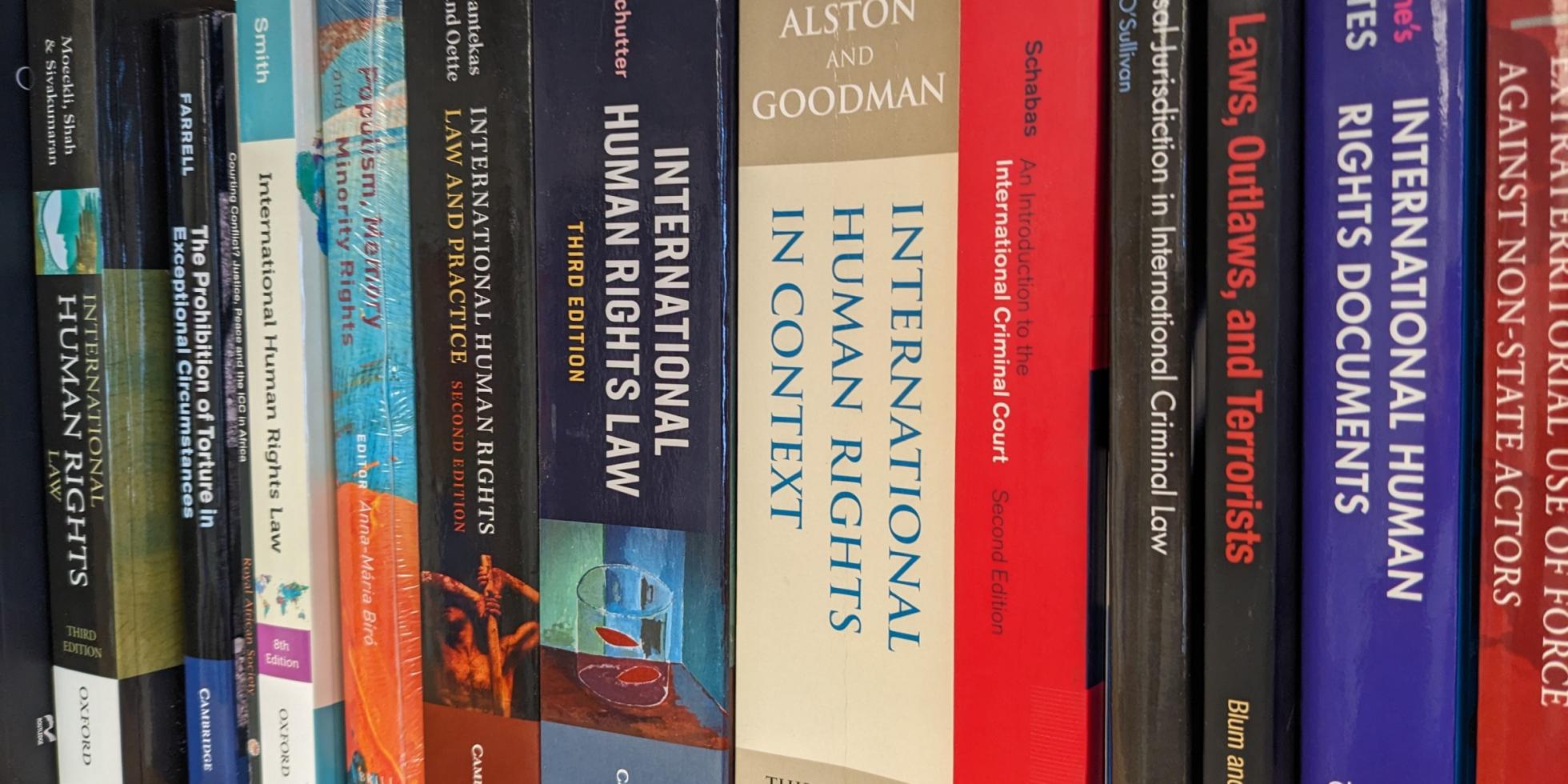The virtual human rights library brings together resources from multiple libraries and information services, both internal and external, to create an online hub dedicated to the study of human rights. This curation is unique in its interdisciplinary concerns and focuses on writings and research from social sciences, humanities, and law.
The virtual library is continually updated with the latest academic research in issue areas, as well as with relevant films, recorded conversations, and other forms of media.
Please Note:
The Virtual Library is usable by all visitors, but the hyperlinks to materials listed are for UChicago community members with a CNet ID and password.
Please direct feedback and suggestions to Kathleen Cavanaugh.
For technical assistance, email pozenhumanrights @ uchicago.edu.
Searchable Database
Click into the dropdowns to select the disciplines, keywords, and media type for your search, and then hit "Apply."
"Tuberculosis: A Disease Without Borders"
Tuberculosis (TB) is an airborne disease caused by Mycobacterium tuberculosis (MTB) that usually affects the lungs leading to severe coughing, fever, and chest pains. Although current research in the past four years has provided valuable insight into TB transmission, diagnosis...
"Twenty Years in the AIDS Pandemic: A Place for Sociology"
This article addresses AIDS as a pandemic of changing social conditions. It reviews the form and consequences of several persistent responses to AIDS (denial, marginalization and urgency) both from within the context of the epidemic in North America and globally...
"UN genocide commemoration, transnational scenes of mourning and the global project of learning from atrocity."
This paper offers a critical analytic reconstruction of some of the main symbolic properties of annual UN Holocaust and Rwandan genocide commemorations since 2005. Applying a discourse‐historical approach (Wodak and Meyer 2010), it retraces how themes of guilt, responsibility, evil...
"Under Western Eyes: Feminist Scholarship and Colonial Discourses,"
In this essay, Mohanty argues that Western feminist scholarship has reduced all women of the third world into a single, collective other. She critiques the approach to feminism and third-world women, arguing for more nuanced scholarship from Western scholars.
"UNESCO and the associated schools project: Symbolic affirmation of world community, international understanding, and human rights."
The UNESCO Associated Schools Project emphasizes world community, human rights, and international understanding. This article investigates the emergence and global diffusion of the project from 1953 to 2001, estimating the influence of national, regional, and world characteristics on the likelihood...
"Unspeakable Acts, Ordinary People: The Dynamics of Torture"
Unspeakable Acts, Ordinary People is a riveting book that exposes the potential in each of us for acting unspeakably. John Conroy sits down with torturers from several nations and comes to understand their motivations. His compelling narrative has the tension...
"Victimhood dissociation and conflict resolution: evidence from the Colombian peace plebiscite."
How does violence shape citizens’ preferences for conflict termination? The existing literature has argued that violence either begets sympathy for more violence or drives support for making peace. Focusing on the 2016 Colombian Peace Agreement, this article finds that victimhood...
"Wanted workers but unwanted mothers: Mobilizing moral claims on migrant care workers’ families in Israel."
Literature on global care work deals with biopolitical tensions between care markets and exclusionary migration regimes leading to the formation of transnational families. Nevertheless, it disregards how these tensions produce “illegal” families within countries of destination, catalyzing the mobilization of...
"Welfare Recipients or Workers? Contesting the Workfare State in New York City."
This paper addresses how New York City's workfare program has structured opportunities for collective action by welfare recipients. As workfare blurs the distinction between wage workers and welfare recipients, it calls into question accepted understandings of the rights and obligations...

